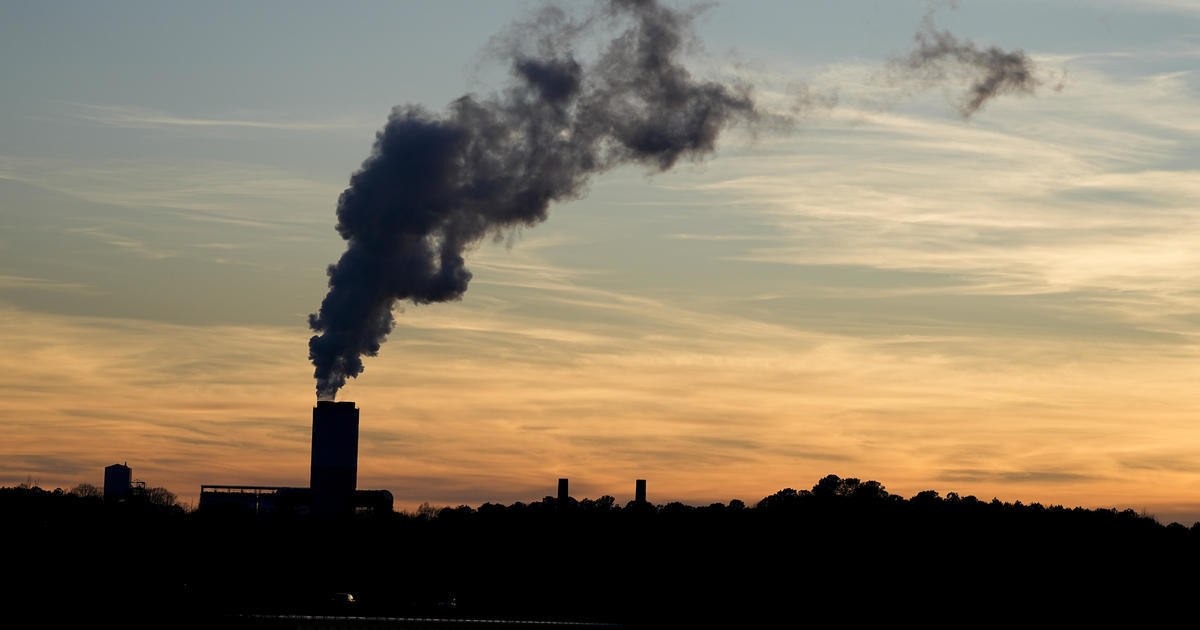Carbon emissions expected to rise for decades — even with targeted cuts
Carbon dioxide emissions are set to climb until 2040, even if every country that's committed to cutting pollution meets its promises.
That's according to a global industry forecast released Wednesday by the International Energy Agency. The World Energy Outlook, which look at energy needs over the next 20 years, is increasingly important to governments because of its relevance to climate policy. This year, the IEA singled out oil as a major driver of emissions. The world's thirst for oil will continue to grow until the 2030s, the report predicted — and consumers' insatiable appetite for sport utility vehicles is a big reason why.
Earlier this year, the agency determined that growing demand for SUVs in the U.S, China, Europe and elsewhere could cancel out the environmental benefits of the increased use of electric cars. Because of their size, SUVs are costlier to electrify than smaller vehicles.
"If the popularity of SUVs continues to rise in line with recent trends, this could add another 2 million barrels per day to our projection," the EIA wrote.
Mounting demand for plastic is another factor driving oil production, as is increasing plane travel and an upcoming population boom in cities across Africa and Asia.
Based on current emissions promises by governments, the IEA forecast global oil demand of 106.4 million barrels a day in 2040, up from 96.9 million last year. Global oil demand is due to slow in the 2030s, and coal use to shrink slightly.
In this scenario, more than half of the growth is led by low-carbon energy sources. "However, the momentum behind clean energy technologies is not enough to offset the effects of an expanding global economy and growing population. The rise in emissions slows but, with no peak before 2040, the world falls far short of shared sustainability goals," the report states.
Environmental advocates say the IEA still isn't doing enough to encourage renewable energy. Oil Change International notably criticized the IEA's "over-reliance" on natural gas as a replacement for coal, saying that will lead to "climate chaos" because gas, too, contributes to emissions.
"The IEA should be guiding the world away from the climate crisis. Unfortunately, the IEA has failed to convey the urgency of the situation," said Nathan Lemphers, senior campaigner at OCI.
More emissions, rising seas
The report comes as flooding in Venice hit the second-highest level ever this week, inundating St. Mark's Cathedral. The city's mayor blamed climate change. Scientists say it's difficult to pin a single such event on climate change, but that increasingly extreme weather events worldwide are linked to human-caused emissions.
The extreme weather driven by climate change also drives further energy consumption. The IEA said that almost 20% of the growth in last year's global energy use was "due to hotter summers pushing up demand for cooling and cold snaps leading to higher heating needs."
The U.S. is central to whatever happens next. U.S. consumers and businesses were a leading source of growing oil demand last year, the IEA said. Also, the U.S. will account for 85% of the increase in global oil production by 2030, thanks to the shale boom.
Asked about President Donald Trump's decision to pull out of the 2015 Paris climate accord, IEA head Fatih Birol said: "as a global issue, it's important to have concerted efforts to address climate change."
The report lays out a more ambitious forecast if governments are to meet the goals in the 2015 U.N. climate accord. That would require a big boost in wind and solar power, the IEA said, and a new push for energy efficiency, which has slowed in recent years.
The more ambitious scenario would also require work on new coal plants in Asia to capture their emissions, or closing those plants early.
The report came as environmental activist Greta Thunberg announced she will return to Europe soon from North America on a catamaran that leaves nearly no carbon footprint, part of an effort to call global attention to individuals' impact on climate change.
While the IEA said such movements and individual decisions by companies and investors "can make a major difference," it insisted that "Governments must take the lead... the greatest capacity to shape our energy destiny lies with governments."



